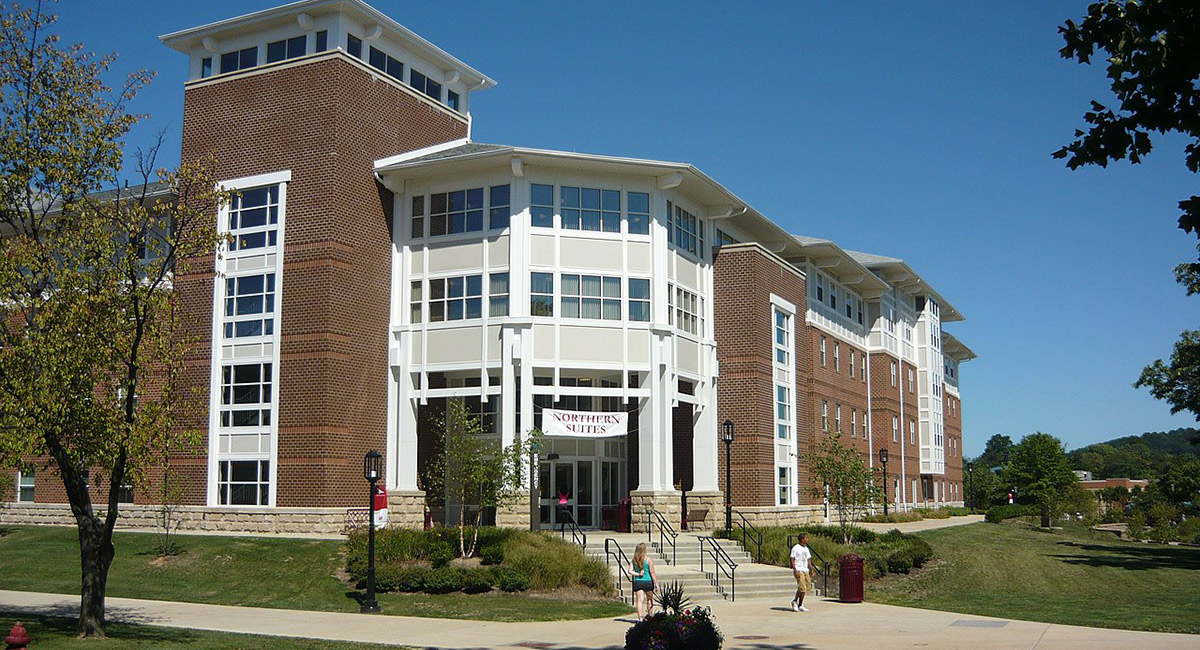Samford University law professor extraordinaire Mike DeBow shared a story from the Pittsburgh Tribune-Review about the vast overbuilding of luxury dormitories around 2007 to 2010 at Indiana University of Pennsylvania (IUP) and other schools in the Pennsylvania higher education system called PASSHE. Conventional wisdom at the time was enrollments would continue to rise, but in order to remain competitive with other schools, colleges needed not only more housing, but also luxury housing perks like apartment -like suites. Fees would be increased to pay for new housing, but students could get ever larger federal student loans to cover the costs. Colleges would borrow vast amounts to fund new housing, while students would borrow heavily to pay the colleges. In reality, however, PASSHE enrollments fell sharply.
The housing investment turned out to be a spectacularly bad business decision. In the private sector lacking taxpayer subsidies, when that happens, firms die or suffer brutally. General Motors, mighty in 2000, subsequently went bankrupt and in reorganized form today has a market capitalization that is one-ninth that of Tesla, a competitor non-existent two decades ago. By contrast, the Biden Administration wants taxpayers to help student borrowers and colleges suffering from earlier bad decisions.
Thanks to our mutual friend John Kopchick, I met recently with the president of IUP, Michael Driscoll, the longest serving president of the small and midsize universities in the PASSHE system of 14 schools, although that number may soon shrink. (I think Pennsylvania leads the nation in the insanity of how it organizes public higher education). Dr. Driscoll inherited the housing overexpansion mess in 2012 and for nine years has juggled managing things, for example reducing staff by roughly one-fourth and taking other measures to keep IUP solvent while still performing important educational missions. The debt on the dorms, held by a separate IUP related foundation, is overwhelming. What to do?
While college enrollments continue to shrink, especially in the Northeast and Midwest, the population of elderly Americans is growing. Why not convert space for college student housing into living facilities for senior citizens? The small to midsized towns many state universities are located in (Indiana, PA has 14,000 population) are senior-citizen friendly communities, with low crime, and university provided cultural and entertainment opportunities—theater, musical performances, public lectures and sporting events - often not available in smaller towns. And, in IUP’s case, Pittsburgh is not much more than an hour away to handle big time medical issues.
Big time federal college bailouts are unlikely to persist, and nationally higher education public support has weakened. Colleges have high fixed costs—tenured staff with high salaries and benefits, big building debt, and often very modest endowments or reserve funds. Most endangered: regional state universities of modest reputation, small private liberal arts colleges, and community colleges. The gap between the rich in poor in colleges is widening.
We are overinvested in universities in one sense today—the capacity of schools exceeds the demand for them except for the most prestigious institutions—there is a flight to quality. A Darwinian “survivor of the fittest” environment exists. Moreover, new competitive modes of credentialing vocational competence are arising—not only on-line schools but also new non-degree options like coding academies for bright computer nerds.
All that said, the traditional residential college has virtues. Universities are about more than nurturing the mind and getting certified to work—there is an important socialization dimension. College is where kids fall in love, develop enduring friendships, learn to navigate the distance between childhood and adulthood. Ten or 12 year old kids go to summer camp to begin their march to adulthood, while 20 year old kids go to college to finish it.
I wish the highly competent and thoughtful Dr. Driscoll the best in dealing with the challenge. IUP is historically the largest PASSHE school, thus setting an example for the entire Pennsylvania higher ed system. Necessity is the mother of invention, Plato perceptively told us more than two millennia ago. Necessity calls for redeploying underutilized resources. Success probably will come to the best and most innovative university leaders—and failure to those whose destructive actions have contributed to the recent decline in the viability of institutions of higher learning.












